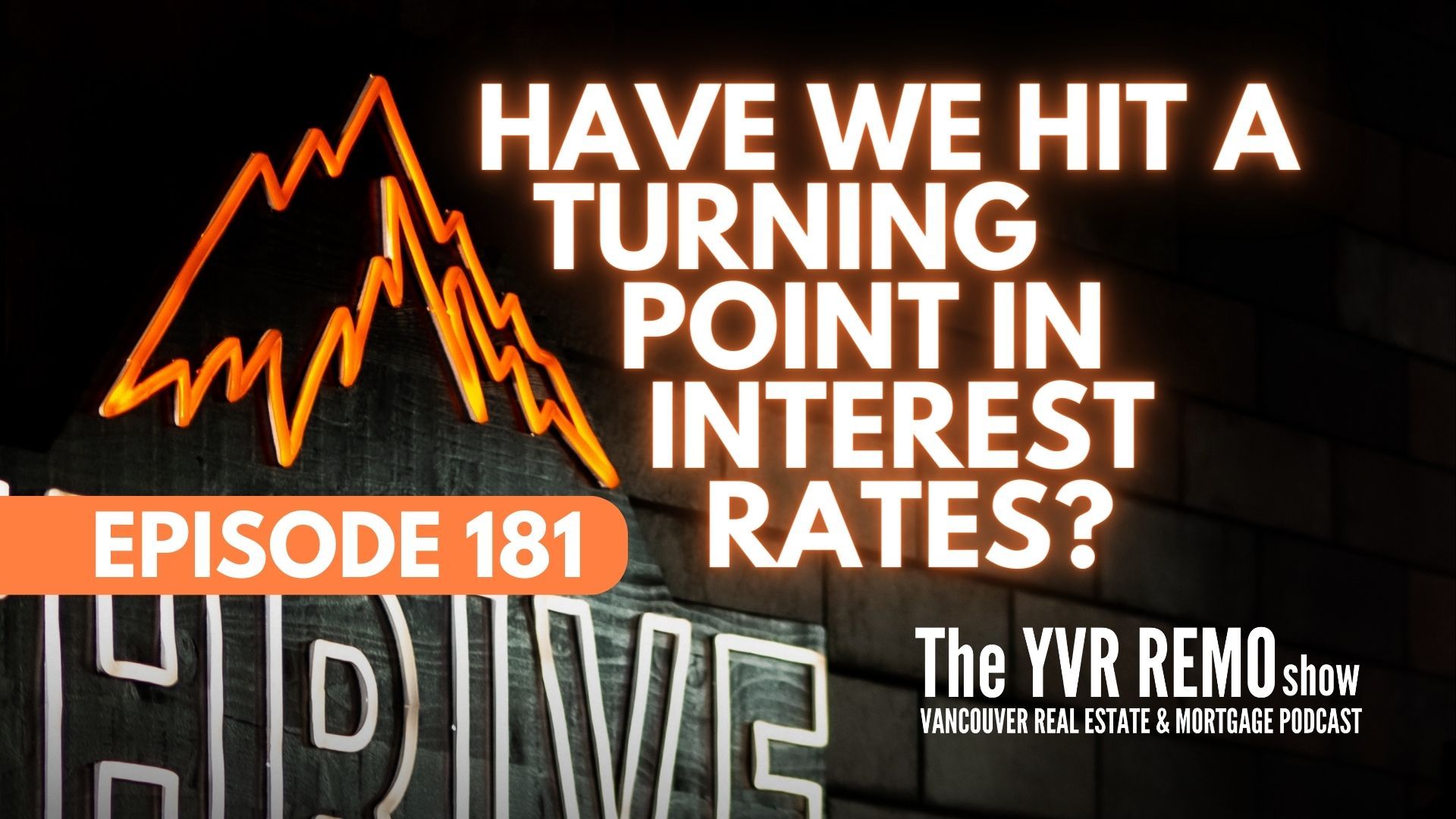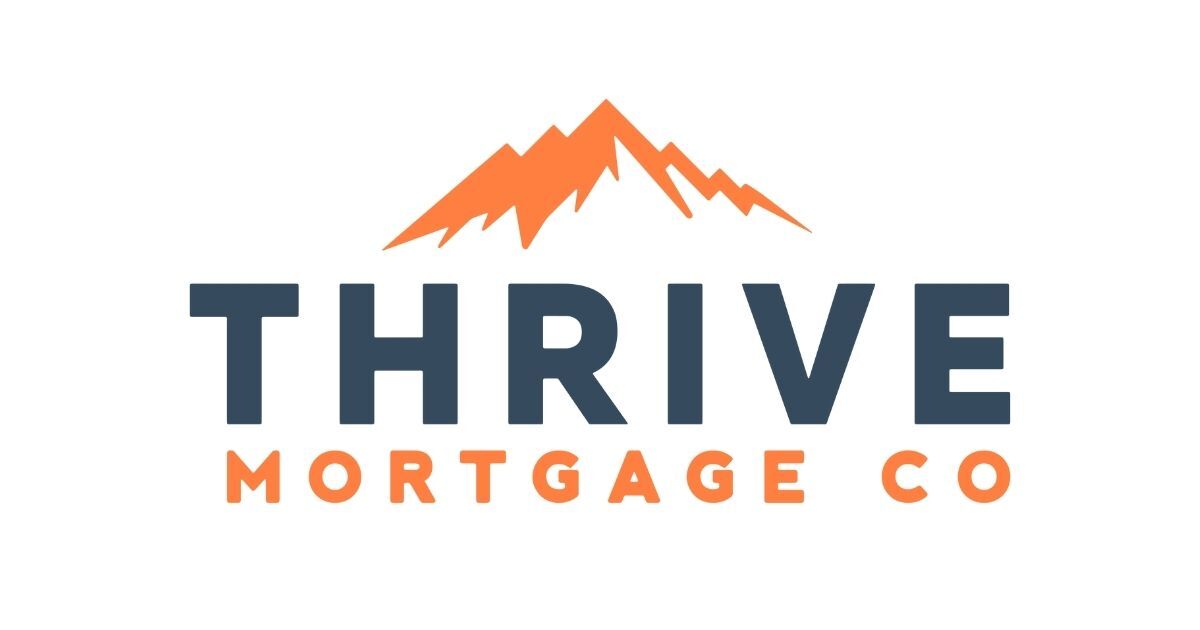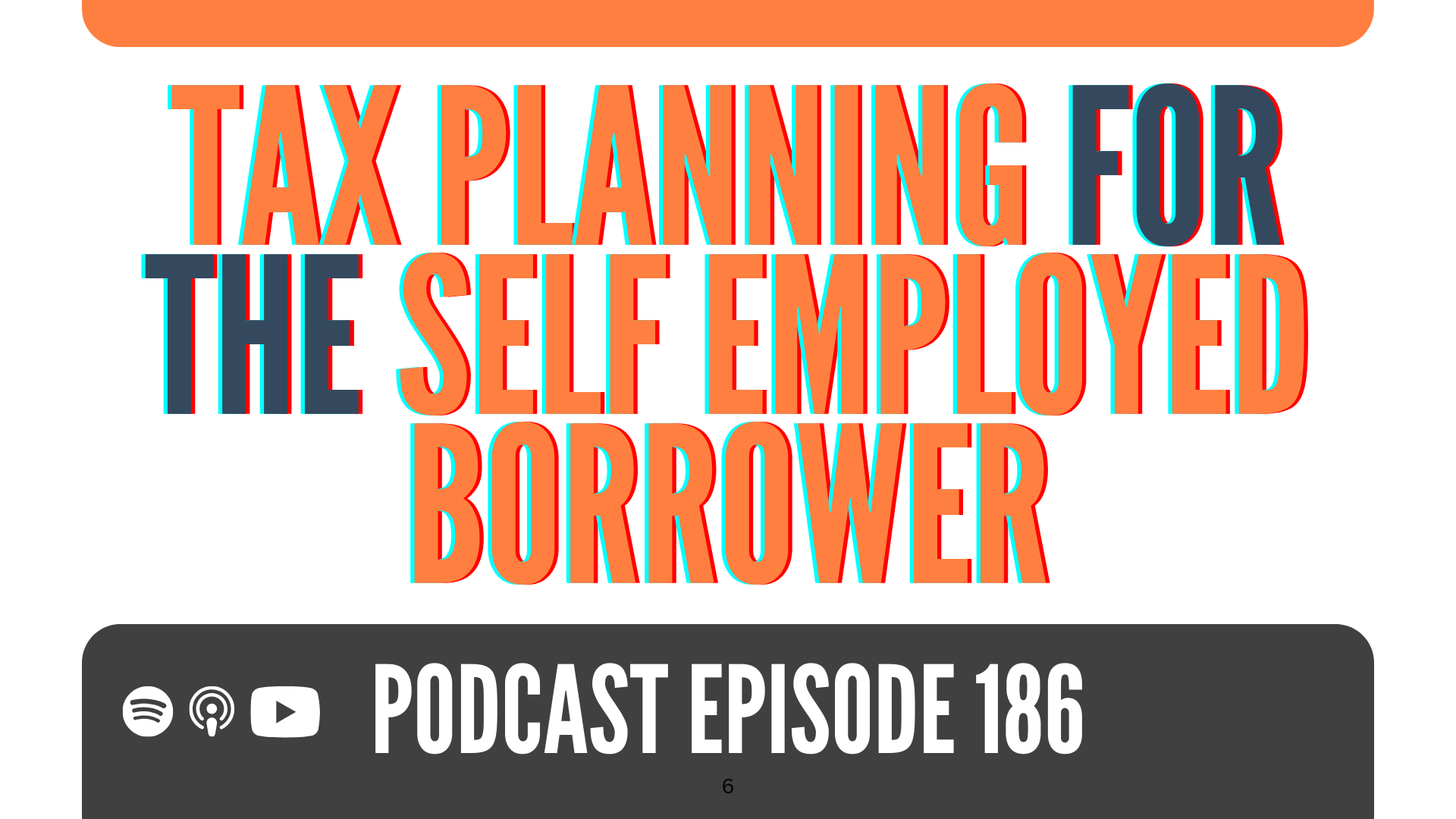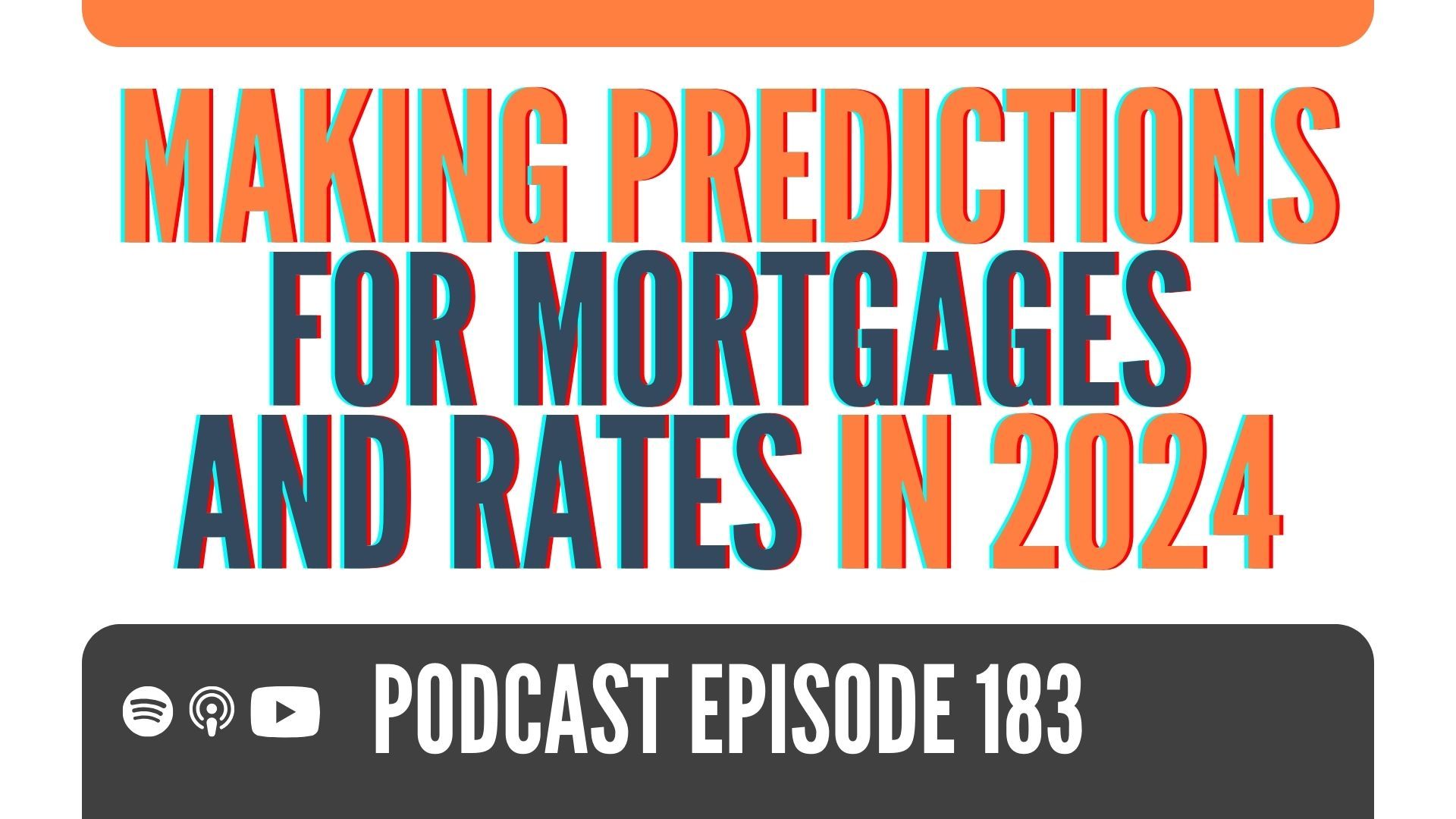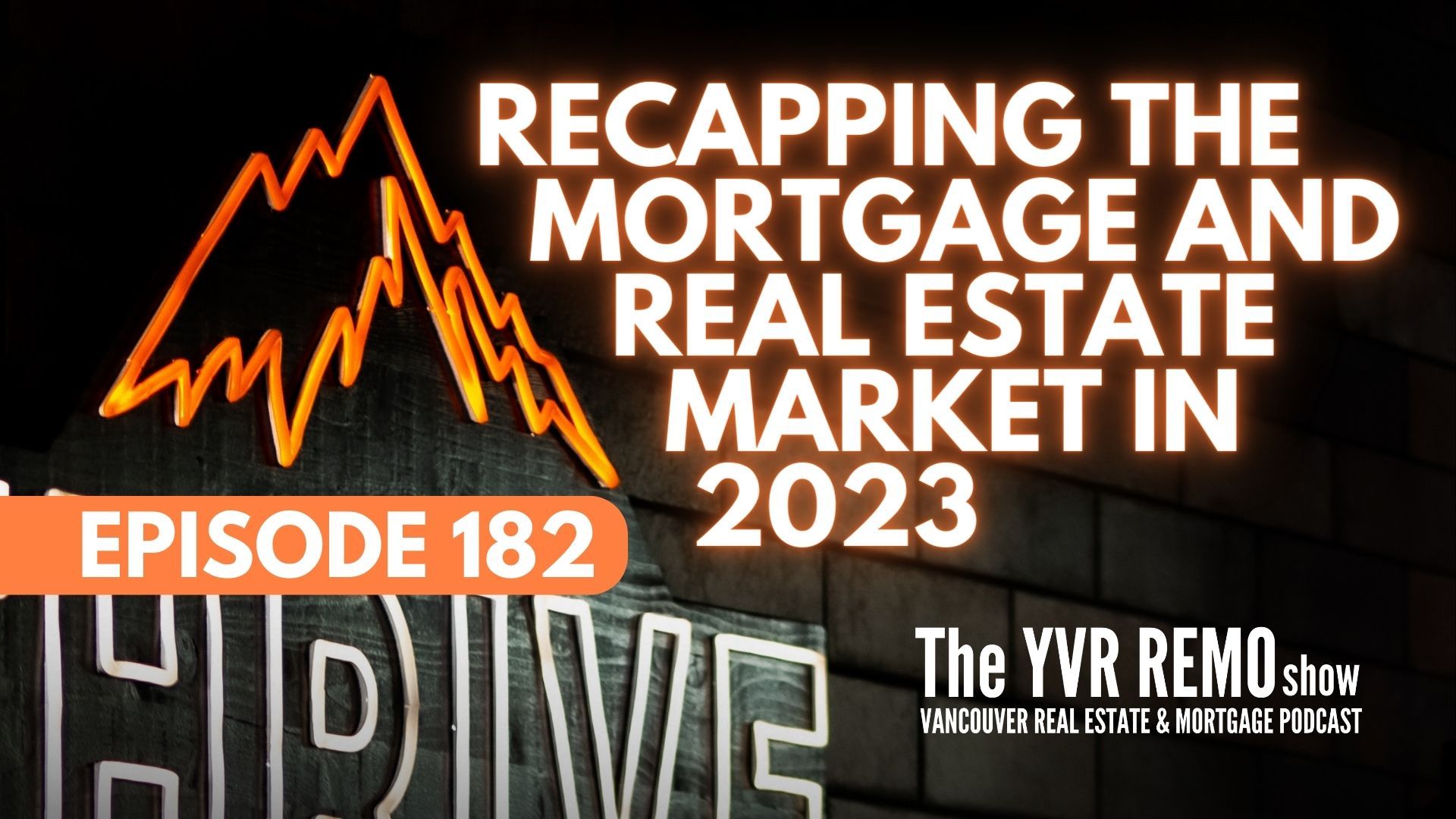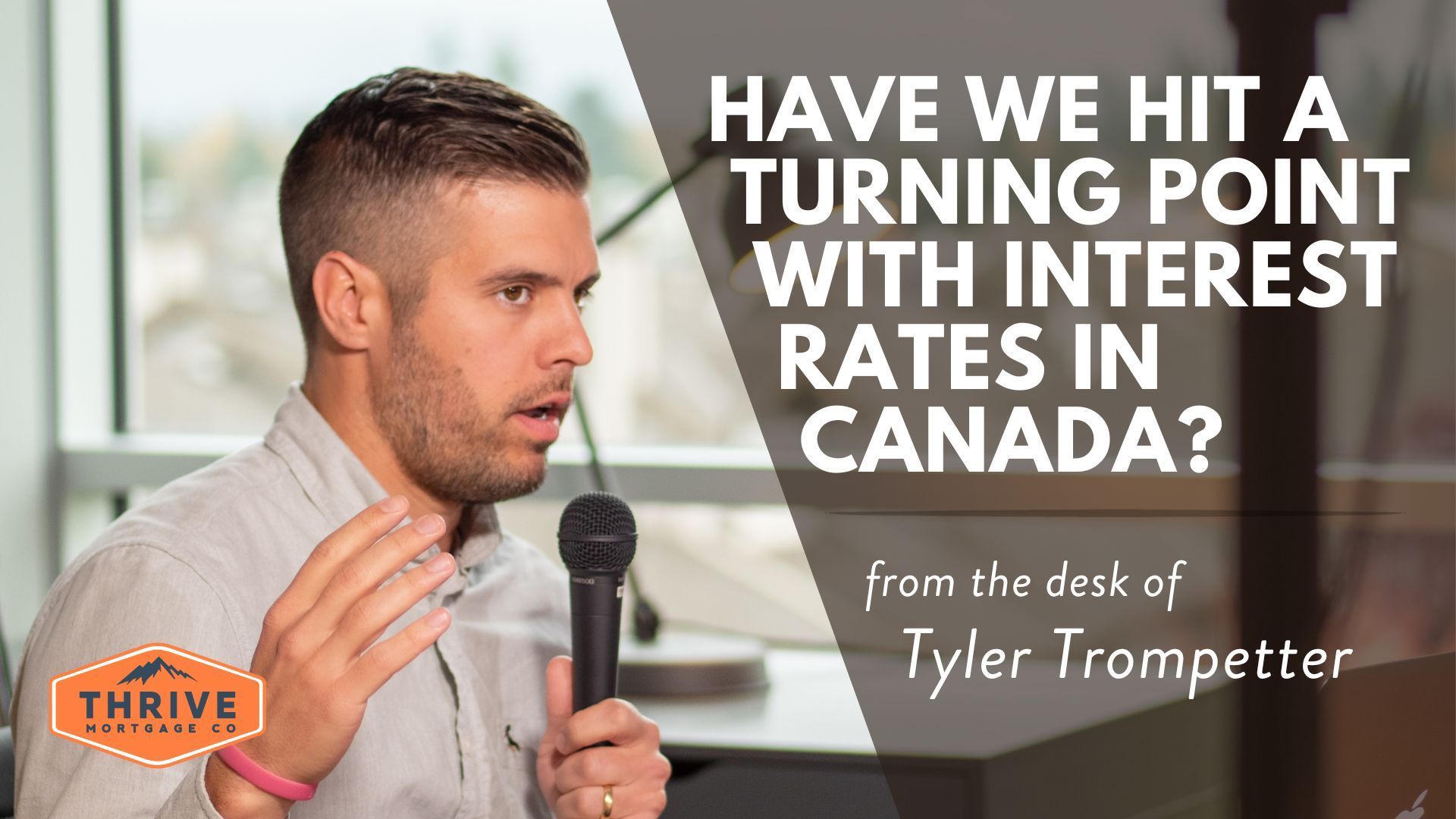YVR REMO Show Episode 74 - Buying Real Estate In A Holding Company
DIGGING INTO THE PROS AND CONS OF
PURCHASING REAL ESTATE IN A HOLDING COMPANY.
The question comes up all the time and there's lots of misconceptions
and a lot of suggestions that don't make sense.
We will give everybody a high-level breakdown of where we suggest it be
used and some situations where we don't think it's a good fit.
You should have a conversation with your accountant and lawyer before you
consider doing this but we can speak on it from a financing perspective.
Alex McFadyen
This question comes up every single day.
We have people reach out for their qualification on a mortgage or when buying an investment property as commercial real estate.
Make sure that the lawyer or accountant is not only giving you independent advice but also having a conversation with your mortgage broker team so that we know what's going on. A lot of times accountants and lawyers recommend things without considering the ramifications of what you can do on your mortgage financing.
BUYING IN AN OPERATING COMPANY VS. HOLDING COMPANY
Dean Lawton
One of the big misconceptions that we get is buying in an operating company versus buying in a holding company.
An operating company is a company that's actually doing active business. They have a source of income and they're generating that income.
Let's use an electrical company as an example, potentially looking to buy real estate for their officer work yard. It would be very rare to see an operating company buy that property in their company name. There's a couple of reasons that they would do that. The biggest one would be risk and liability. It's quite common that a company like that would form a whole new holding company to hold the real estate.
A holding company just holds assets, it does not generate income. The only income that a holding company would generate would be interest on money that they're lending or rental income from a rental property, which is what we're talking about today.
Once again, it's very rare that you would see an operating company purchase a property.
Deryk Williamson
This electrical company that we're talking about, that company is actively doing business where they have multiple projects on the go. They're very susceptible to lawsuits and liability. There's a lot of action within an operating company.
With our company, as an example, we work with thousands of clients every single year. A holding company doesn't have exposure to liability like that. It could be a lot of people drawing money from their holding company. They might not want to have a ton of money sitting in the operating company because of the risk of liability. They'll actually move the money to the holding company and it just sits there as a level of protection from the risk of the operating company. That's a huge one, getting those major assets away from any type of liability or lawsuit that can be drawn from the operating company.
Alex McFadyen
One of the considerations is not understanding the fact that there can be layered companies under companies. Our accountant explains to us tiered strategies where you'll have multiple people in our company and there will be a company under that which holds your holding companies. There's a lot of reasons behind going this route but it does allow for you to separate your taxes and income.
Dean Lawton
Where we would potentially see an operating company buy real estate is a company that's strictly built to buy real estate and build a business around rental income. It's a pure rental business.
As an example, let's assume somebody has five plus properties. One property is a legitimate business. As you grow and buy more property, we do see some people do re-organizations where they will turn it into an operating company that is managing these properties as a legitimate business. In those cases, we may see an operating company hold title and hold the mortgage. It's quite common that we see that layered approach as they accumulate them. The operating company is managing the holding companies that are holding and managing the asset. There's a lot of different ways that you can go down this road, but I'd say the most common property or entity would be a holding company opposed to an operating company.
SELF-EMPLOYED
Deryk Williamson
A lot of people who are self employed run into the same issues, which is they don't claim enough income on their personal taxes. There's obviously tax benefits. If you have a corporation, you can leave money in the corporation. We run into this a lot where people who are self employed don't qualify for the size of the mortgage that they were hoping for with traditional lenders.
The question always comes up,
can I just buy it in my business?
Can I use my business income?
Can I buy it in a holding company?
Can I use more income for my business?
That is not how it works for residential lending. Purchasing a property in a holding company is not going to allow you to qualify for more. It is quite literally a different entity going on title for potential tax benefits which your talk to your accountant can clarify. For asset and liability protection, talk to your lawyer.
We're looking at your income, credit, and debts. That is how you're going to qualify for that rental property. There are programs out there where we can look at business income, but that's a totally different lending piece.
Alex McFadyen
I hear it from people who are buying their second or third real estate investments. It's not necessarily allowing you to qualify for more to stick it in a corporation, I think that's an important factor to consider.
MULTIPLE HOLDING COMPANIES FOR EACH BUSINESS
Dean Lawton
It's very common where an individual will buy a property and have one holding company for that. As they accumulate properties, each property will have its own holding company. So, not one holding company but holding multiple properties, literally one holding company per property. The biggest reason for that is with all the liability reasons that we just touched on and mainly exit strategies. This is especially around properties that have development potential.
AVOIDING PROPERTY TAXES
Dean Lawton
We're looking at properties quite regularly that could be rezoned into a four-plex such as a townhouse development. There's lots of potential future value for some of these properties. Somebody with a developer's mindset sees that and asks what can I do with this property? How do I exit? How do I sell and realize a bump in appreciation? What they'll do is they'll actually sell the shares of the company opposed to selling the title of the home. What would happen is a potential developer, somebody that does build townhouse projects would buy that holding company. By buying the shares of the holding company, they then acquire the asset which is the title of the property and avoid paying property taxes. This is possible because there's been no change in title, they're simply buying the shares of the company that owns the title.
That is one way that we avoid a pretty significant tax and again, it's not going to be a value for the seller from a dollars perspective, but it's going to open them up to a far wider range of buyers, especially around the developer side.
FAMILY TRUST AS A COMPANY
Deryk Williamson
If you own a handful of properties and you have plans on passing these properties down to your kids, there are ways to structure properties in family trusts and companies. It's a similar structure where instead of passing title to your son, you're actually just adding him as a shareholder to the company and the asset is transferred down from there. There's a lot of potential benefits such as tax deferral options that you can look into there.
If you are buying a commercial property, most lenders require you to be purchasing it in a corporation. They won't let you purchase it personally. That's from a mortgage standpoint. When you are purchasing commercial property, there's typically a greater risk of liability. You have a company operating in that property, it's not just mom and dad living there and paying your rent every month. Having that asset protection and liability is really important.
UNDERSTANDING HOW A HOLDING COMPANY WORKS
Dean Lawton
Look at a holding company as another person, another entity. Where you're buying for commercial use, it is very common that the operating company will set up the holding company to buy the property and then that holding company will rent the property to the operating company. It's one owner that manages everything, but he's actually paying himself rent. Himself being the holding company that we should look at as its own entity, it's almost like another person.
REAL LIFE SCENARIO
Deryk Williamson
A real life scenario is Thrive Mortgage Co. We recently purchased an office that we're currently building out and Thrive is actually going to be paying rent to the operating company that owns the building. It's a tax write off for Thrive because Thrive is actually going to be utilizing and operating within that. If you're buying a property that you're going to be leasing out, it's a little bit different, the tenant is the one that's paying you the rent.
JOINT VENTURES
Deryk Williamson
We have a lot of clients that will buy together, they'll create a joint venture. This is 2 to 4 people buying properties together. A really good way to structure that is rather than having four people on title of three properties, you can create that holding company and four people own divided interested shares in that corporation which is purchasing the property. Outside of that you have your legal ownership agreements drafted up. Anything for the purpose of investment, we rarely see people buy an owner occupied residence in a corporation. I've never seen it make sense.
Dean Lawton
Joint ventures don’t have to involve a holding company, but a holding company is a great vehicle for a joint venture opportunity.
HOLDING COMPANIES WHEN IT COMES TO YOUR MORTGAGE
Alex McFadyen
Putting your mortgage into a holding company, it does limit your options and it will change your total cost as it pertains to your mortgage. I haven't seen anybody do it from an owner occupied, primary residence standpoint. With most lenders, you're not getting the same interest rates and you're not buying it with 5% down. For the perspective of borrowing, your lenders are still looking for it to be in your name. They don't want you to buy this in a company.
Deryk Williamson
There's nothing positive when it comes to the lending components for buying in a holding company. There are a lot of lenders out there that actually won't offer financing to a holding company for residential properties.
Being mortgage brokers, the more lenders that we have access to, the better. A lot of these lenders will add an interest rate premium.
A lender looks at this and says, why doesn't Deryk want to buy in his personal name?
Is there risk in this mortgage going under?
Is there risk in foreclosure?
They look at it from that aspect. They always will add a bit of a risk based premium.
Alex McFadyen
What is one of the first things that people ask us? What are the interest rates?
The first time someone buys an investment property, they're often surprised and say, why is this lender surpassing the interest rate or adding a certain amount? We have to be honest, lenders are not looking for rental properties on their books. These lenders are looking for what they would consider to be the safest possible investment which is your owner occupied residence. Another thing to keep in mind is the vast majority of lenders that are out there, it's not their money, they're lending money from investors. These investors decide what the parameters of your mortgage should be to offer you X amount of rates. Going back to the rate conversation, that's why when you see these rates online, it's so difficult for so many people to qualify for them, because you don't fit those parameters. You're going to get surplus for your rental rate already, the holding company just adds another layer where you are reducing your options. The more you reduce your lending options, the less that we can qualify you for. You always want to provide yourself the most options.
CONSIDERATIONS IN CREATING A HOLDING COMPANY
Deryk Williamson
In creating and buying a company, there are costs. It's a little bit more administrative than just purchasing in your personal name. You have to physically get a lawyer to incorporate that company for you. That'll cost around $1,500 bucks. I've seen them to be around $2,000. There's paperwork, time, and effort that goes into doing that. If you've already purchased and you're trying to scramble at the last minute to do this, it might not work. There are ongoing costs that you would not typically incur if you're purchasing in your personal name. That company has to have an annual legal filing completed every single year by a lawyer. It's not overly expensive, around $100, but that has to happen every single year like clockwork.
You also have to prepare financially. Do you have to do taxes for that company? Depending on the cost of your accountant, that could be $1,500 bucks a year going forward. You really have to look at this and say, I'm buying a $300,000 condo that I'm netting $5,000 a year, does this make sense with the costs that I'm going to incur? There's typically a level of income or profits that you should be anticipating for it to make sense to buy in a holding company. Those are just some of the other considerations.
Alex McFadyen
As a side product of all of that is the time. You have a life and probably work a full time job, and now have to fit in conversations with accountants and things of that nature. There is time that goes into managing, creating, building, and looking at all these structures. That's where things can fall apart.
Deryk Williamson
On the asset protection piece, it does put a layer between you and that property from a liability standpoint, there could be tax benefits. Tax deferral is typically what we see so chat with your accountant. That's where you're typically holding the proceeds or the profits, it goes back into the corporation. Until that money is drawn, you typically won't see that major tax bill. Sometimes we see that mortgages don't register on your personal credit bureau, it really depends on the bank. Most of the time they do but sometimes they don't, which can be beneficial in certain personal property acquisition situations. From a business standpoint, if you have an operating company,you're separating that liability again. The operating company is where all the risk and liability is and it allows you to acquire property and separate that liability completely.
FLIP STRATEGY
Alex McFadyen
You brought up the flip strategy, why would someone want to do that for the purpose of flips?
Deryk Williamson
Are you expecting this property to produce a fair amount of profit? Most of the time, if you're going into a flip you plan on it or it's probably not a good idea. If you're going to make $100,000 on a flip, that's a fair amount of money. If you do that in your personal name as an investment, all the taxes that come with that can be hefty. That's a cost that you have to consider to see if it actually makes sense to take on that project. If you're doing repetitive flips and you're turning it into a business, in those situations it can be looked at as business income. Including the corporation in buying the property can actually have some tax benefits there because you're looking at that like business income with write offs. You draw dividends from the corporation, it's just a different structure. It's a one off for sure, there's probably some short term benefit if it's ongoing and that's what you're doing for work. You can actually try to structure that as a business with your accountant and have the income looked at in a different way.
Have more questions? Get a hold of us!
We're on Instagram!
instagram.com/thrivemortgageco
Check us out on Facebook!
How to Reach US! 📲
Call 604.398.5575 or Email us!
More Questions or READY to get started!?
Just Ask US > Click Here to set up a call or EMAIL us
